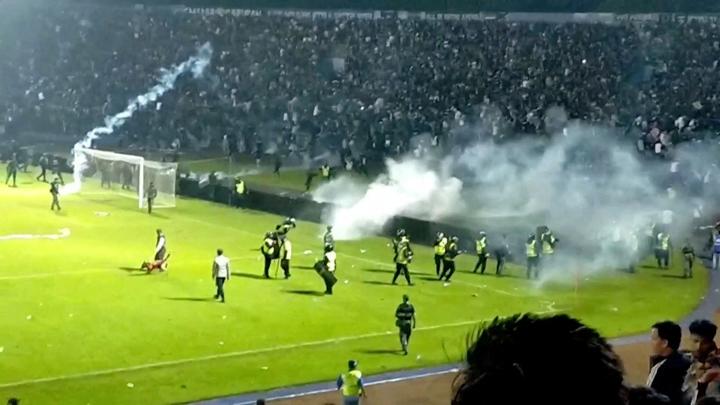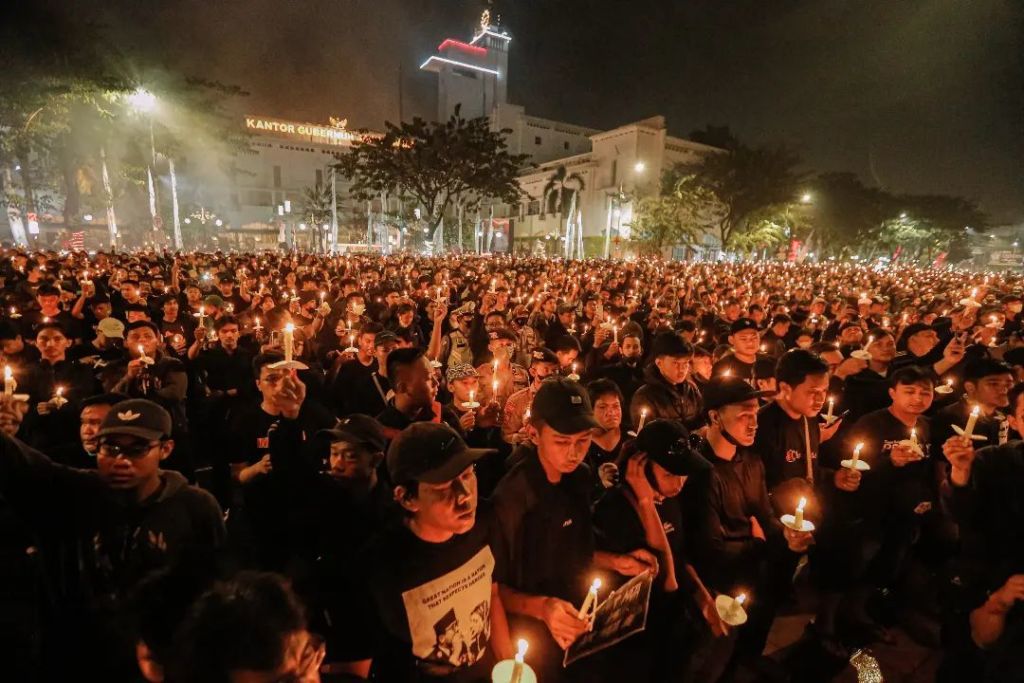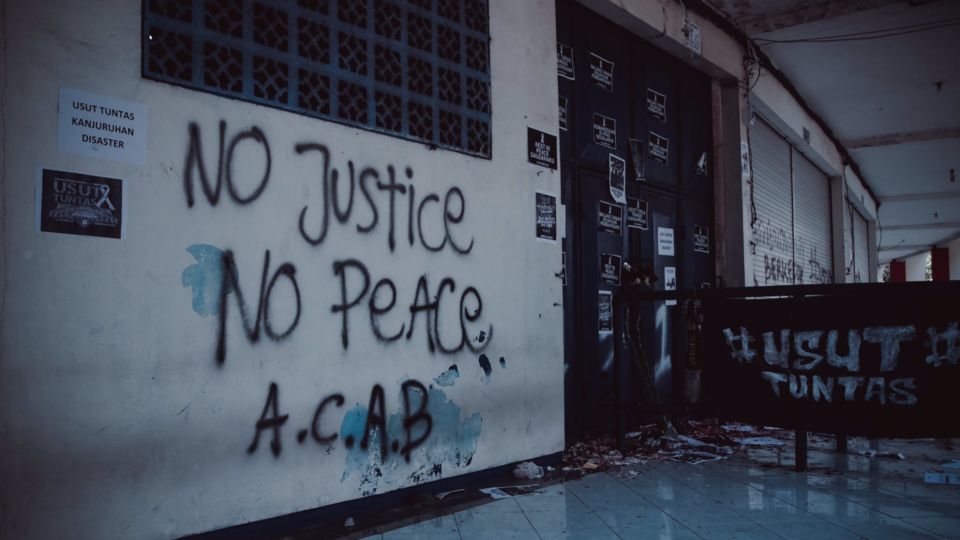Jefry Gigih Permana has been a hardcore supporter of Malang’s soccer team, Arema FC, for many years. But now he says it could take years for him to gather the courage to return to the stands of Arera’s Kanjuruhan Stadium — if he ever does.
Born in Banyuwangi, East Java, the 34-year-old became enamored with the team when he first attended an Arema match in 2005. The pride of Malang won back-to-back Copa Dji Sam Soe honors that year and the following year. In 2015, Jefry moved to Malang and became a permanent resident of the city, solidifying his love for Arema.
But after the tragic events of Oct. 1, 2022, the trauma may run too deep for him to ever enjoy watching Arema, or soccer, ever again.
“If soccer still exists [for me], I don’t know. Will I be able to return to the stands [of Kanjuruhan]? Maybe in five, 10, or 20 years,” Jefry told Coconuts.
The thought that so many of his fellow Aremania — as Arema fans affectionately refer to themselves — perished that day will never be forgotten. But Jefry, like many other Aremania, would like to set the record straight regarding who should be blamed for the tragedy.
Jefry returned to the site of the tragedy on Oct. 4 but stopped short of entering the stadium. In his Twitter thread, which has been widely shared around the country, he posted photos of Aremania-tagged graffiti expressing extreme anger toward authorities comprising phrases like “ACAB” (all cops are bastards), “To whom should we seek protection?” and ”Investigate the tragedy thoroughly.”
One major point of contention is whether or not, as police claimed, Aremania fans invaded the pitch to attack players and club officials after their team lost at home to arch-rivals Persebaya for the first time in 20 years. Police used the threat of such violence to justify their heavy-handed response.
“I am certain, 100 percent, that Aremania would never attack their own players in a pitch invasion. They were expressing their anger and disappointment. But pitch invasions at Kanjuruhan are nothing new, although it never turned out to be as horrifying as Saturday evening,” Jefry said.
“How could it be that they said Aremania attacked the players of the club they love? Back then, we often held fundraisers to pay the players’ salaries amid financial difficulties for the club. To me, the claim doesn’t make sense — made by those who don’t know Aremania.”
Indeed, footage that has emerged since the tragedy shows police firing tear gas toward the stands and fans, including children, who did not take part in the pitch invasion. The tear gas is believed to have caused widespread panic in the stadium, resulting in a deadly stampede as spectators rushed towards the only two narrow exit corridors that were open.
By the latest official count, at least 131 people died, making Kanjuruhan the second deadliest soccer-related tragedy in history.

The National Commission on Human Rights (Komnas HAM) released a statement on Oct. 5 that supports Jefry’s claim and pushes back against the narrative that fans triggered the tragedy.
“We met with several Aremania to cross-check their claim with the players. So they say they wanted to lift the players’ spirits after the defeat. They wanted to tell the players, ‘even though you lost, we are one soul, so come on Arema, don’t give up,’” Komnas HAM Commissioner M. Choirul Anam said, adding that the players confirmed this as well.
“No players were hurt. The players also said that the claim that [pitch invaders] wanted to hurt the players was wrong.”
The fact that the police — who initially claimed they had to resort to firing tear gas due to the violence of supporters — have dismissed 10 regional commanders in light of the tragedy is the closest we have gotten to an admission of guilt from law enforcement. In total, 28 cops are reportedly set to face an ethics committee over the tear gas fiasco, and will likely face criminal charges as well.
Now, with the country’s premier soccer league indefinitely suspended while an investigation into Kanjuruhan continues, comes the time for fan introspection and reconciliation.
On Monday evening, thousands of Persebaya fans held a vigil in the East Java capital of Surabaya to remember the lives lost at Kanjuruhan. The message was clear: the time has come to end excessive rivalries between fans and for humanity to take priority over soccer.

Jefry, who has seen numerous instances of rivalry-fueled violence in the past, appreciated the gesture.
“I just want all of the enmity to stop here. I don’t want my children and their children as well as other Aremania to carry this vengeance without end,” he said.
“I believe that soccer is about entertainment, not a way to the grave.”
He sees the stands by gates 13 and 14 at Kanjuruhan as the final resting place for the victims. The two gates were reportedly shut amid the chaos, trapping the hundreds of panicked spectators as they attempted to flee the tear gas.
“When Aremania returns — whenever that will be — maybe I will be there, but I will not enter Kanjuruhan. I will stop outside gates 13 and 14, and I will let the hundreds of my friends’ souls enjoy the game,” he said.
“They are more deserving to be called Aremania. The true Aremania, who are proud of their Arema until their last breath.”
More from Kanjuruhan
Has the final whistle blown on Indonesian soccer?
‘Humanity above football’: Thousands of Persebaya fans mourn Kanjuruhan tragedy victims
Kanjuruhan tragedy: National Police launch internal probe over tear gas
National Police chief offers Kanjuruhan victim’s brother a spot in the force
Police justify ‘last resort’ tear gas use in deadly Kanjuruhan soccer riot




